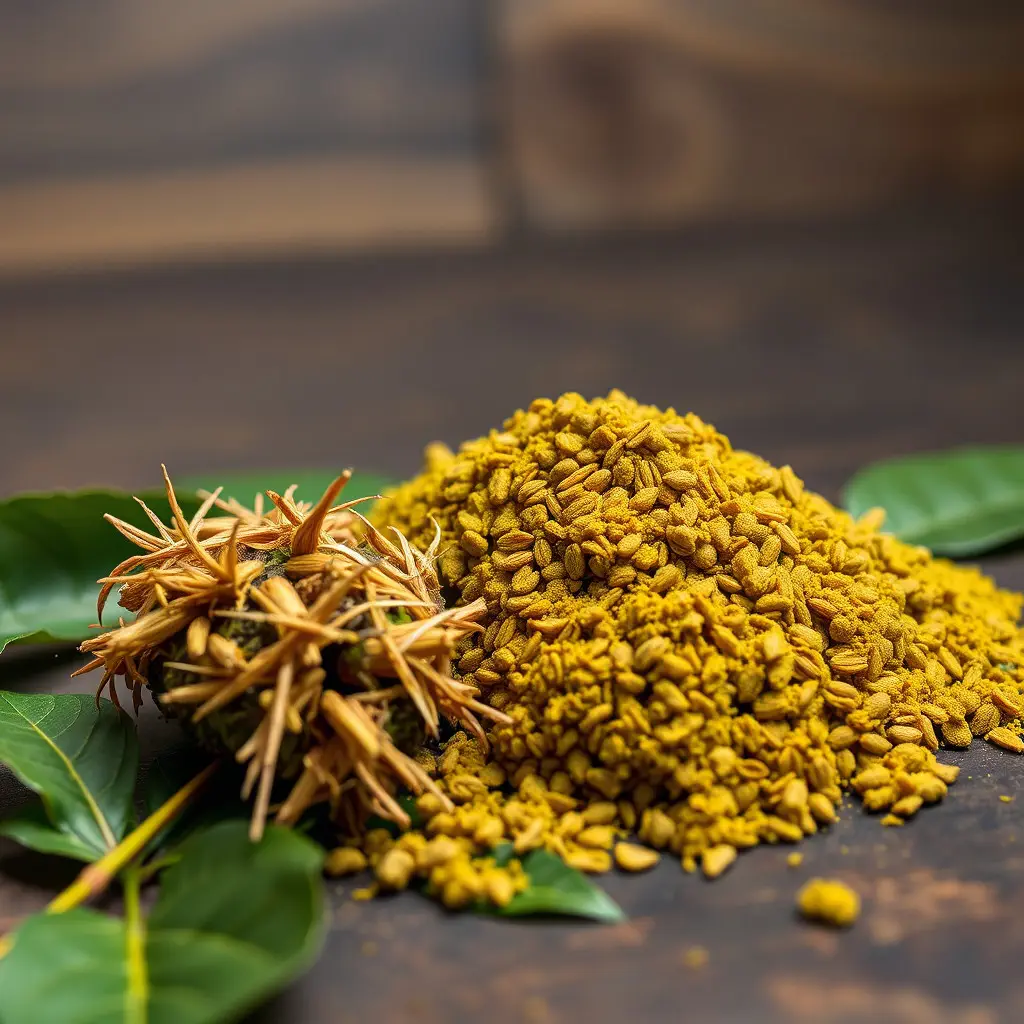Chronic inflammation can cause various health issues, but Indiana kratom, a regional variant of Kratom with potent anti-inflammatory properties, offers hope for relief. Its active compounds mitragynine and 7-hydroxymitragynine interact with opioid receptors to reduce pain and pro-inflammatory cytokines. Beginners should start with low to moderate doses (1-3 grams) under professional guidance, as high doses or long-term use may cause adverse effects. Always consult a healthcare provider before incorporating Indiana kratom into your regimen.
Discover the power of nature’s remedy with Indiana kratom supplements – a natural approach to reducing inflammation. This herb has gained attention for its potential anti-inflammatory properties, offering hope for those seeking relief from chronic inflammation.
Our article delves into the science behind Indiana kratom and its ability to combat inflammation. We explore its benefits, provide dosage guidelines, and offer crucial safety precautions, empowering you with knowledge on how this natural supplement can support your well-being.
- What is Inflammation and How Does Kratom Help?
- The Science Behind Indiana Kratom and Its Anti-Inflammatory Properties
- Potential Benefits, Dosage, and Safety Precautions of Kratom Supplements for Inflammation Reduction
What is Inflammation and How Does Kratom Help?
Inflammation is a natural process that occurs as part of the body’s defense mechanism, responding to injuries or infections by sending immune cells and chemicals to the affected area. However, chronic inflammation can lead to various health issues, including joint pain, skin conditions, and even serious diseases. It’s in these scenarios that natural remedies like kratom supplements step in, offering potential relief.
Kratom, derived from the plant Mitragyna speciosa, has gained attention for its anti-inflammatory properties. Studies suggest that specific compounds in Indian kratom (a popular strain known for its effects) interact with opioid receptors in the body, modulating pain sensation and reducing inflammation. By activating these receptors, kratom may help alleviate chronic pain and associated inflammatory responses, providing a potential alternative or adjunct to conventional treatments.
The Science Behind Indiana Kratom and Its Anti-Inflammatory Properties
Kratom, a natural herb native to Southeast Asia, has gained attention for its potential health benefits, particularly in reducing inflammation. Among various forms, Indiana kratom stands out due to its unique composition and medicinal properties. Scientific research suggests that specific compounds found in kratom leaves possess anti-inflammatory effects, making it a promising alternative for managing chronic inflammatory conditions.
The active ingredients in Indiana kratom, such as mitragynine and 7-hydroxymitragynine, have been studied for their ability to interact with the body’s endocannabinoid system. This system plays a crucial role in regulating pain perception and inflammation. By modulating these processes, Indiana kratom may help alleviate symptoms associated with inflammatory disorders, offering a natural approach to support overall well-being.
Potential Benefits, Dosage, and Safety Precautions of Kratom Supplements for Inflammation Reduction
Kratom supplements have gained attention for their potential benefits in reducing inflammation, offering a natural alternative to conventional anti-inflammatory medications. The primary active compounds in kratom, known as mitragynine and 7-hydroxymitragynine, exhibit powerful anti-inflammatory properties. These compounds interact with opioid receptors in the body, modulating pain signals and reducing the production of pro-inflammatory cytokines, which are molecules responsible for causing inflammation.
When considering kratom supplements for inflammation reduction, it’s crucial to understand the appropriate dosage. Typically, a low to moderate dose of 1-3 grams of kratom powder or capsules is recommended for beginners. Higher doses may be used under professional supervision for specific conditions. However, safety precautions are paramount. While kratom is generally considered safe when used responsibly, long-term use or high doses can lead to adverse effects. It’s essential to consult a healthcare provider before incorporating kratom into your regimen, especially if you have pre-existing health conditions or are taking other medications. Additionally, opting for high-quality, sourced indiana kratom ensures purity and potency, enhancing the safety and potential benefits of supplementation.
Kratom, particularly Indiana kratom, has shown promising potential as a natural anti-inflammatory agent. The scientific understanding of its mechanisms and numerous anecdotal reports suggest its effectiveness in reducing inflammation. However, further research is needed to explore its full capabilities and ensure safe usage. When considering kratom supplements for inflammation reduction, it’s crucial to adhere to recommended dosages and consult healthcare professionals for personalized guidance.






